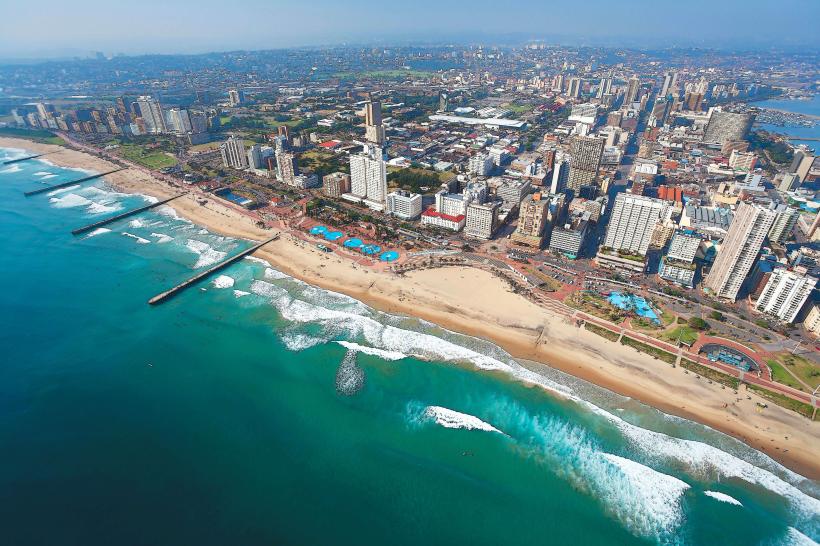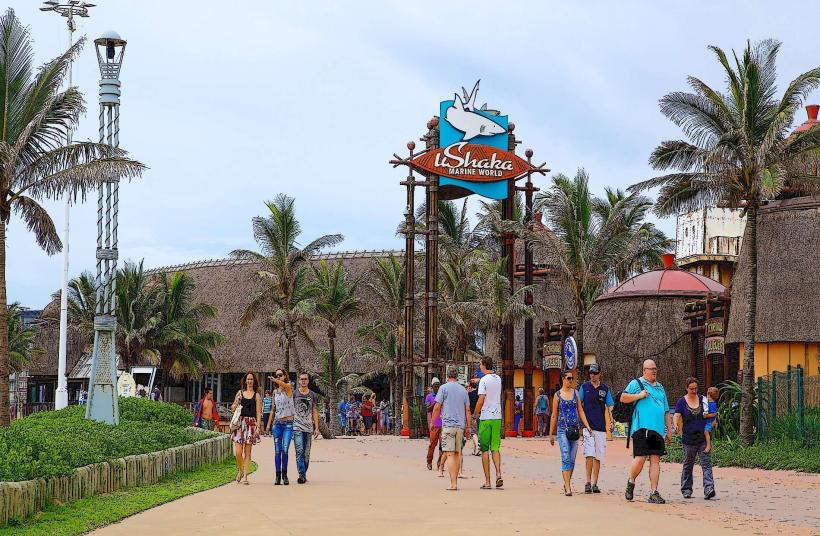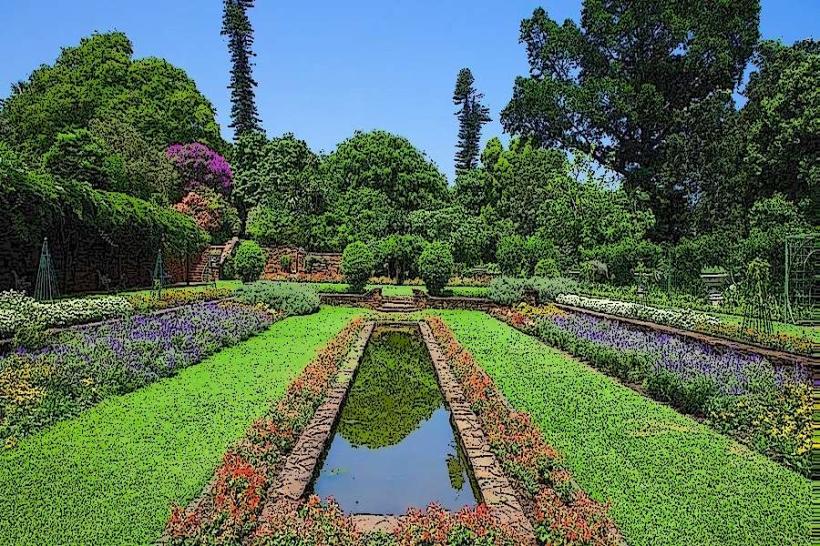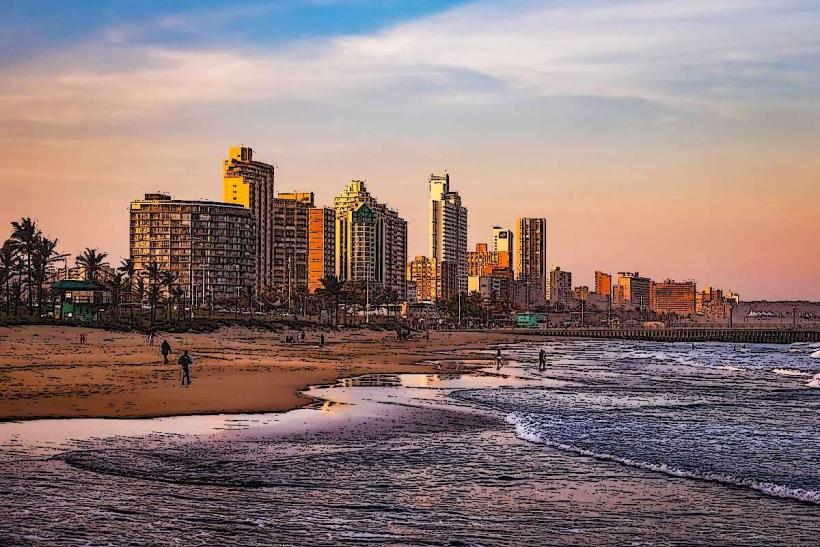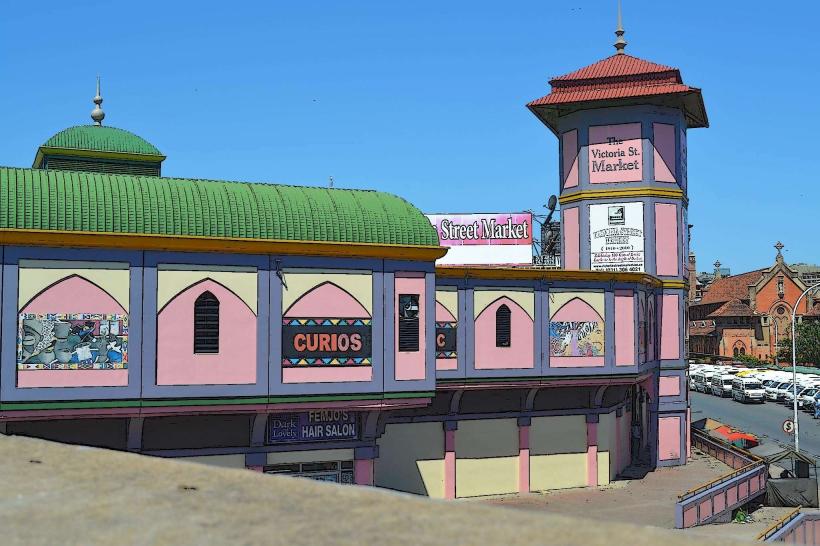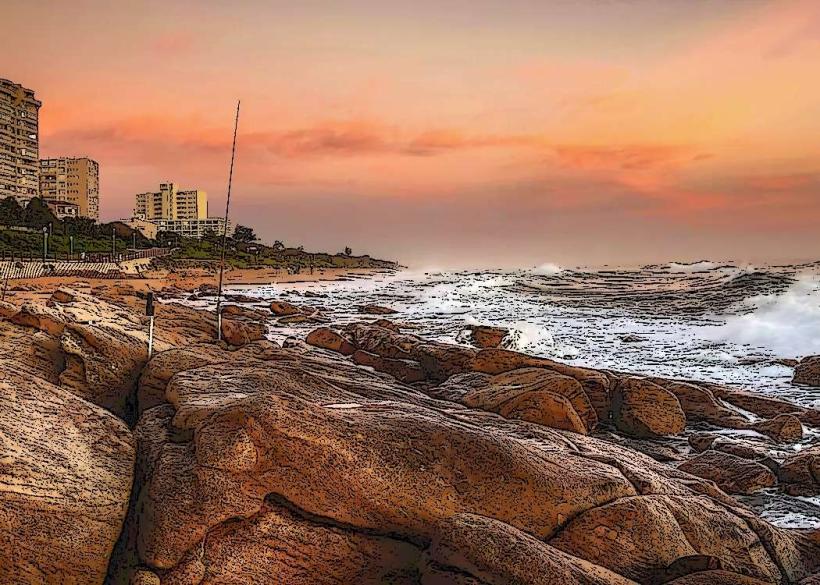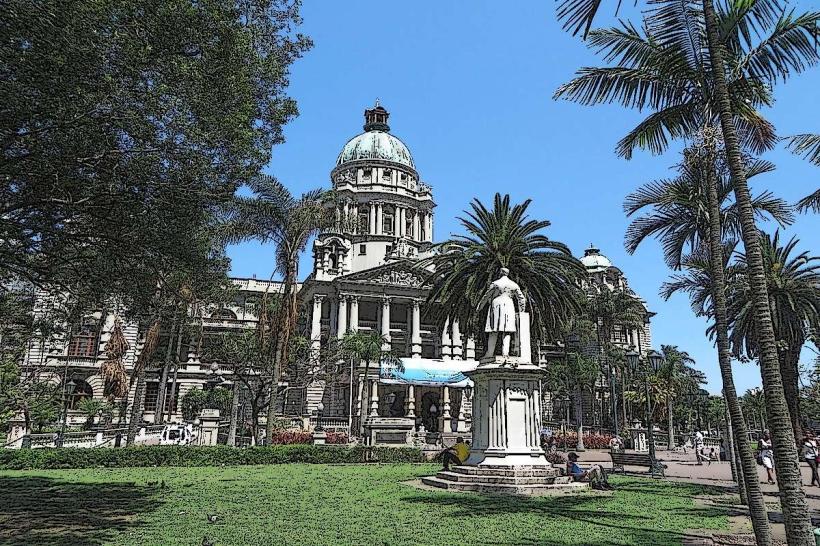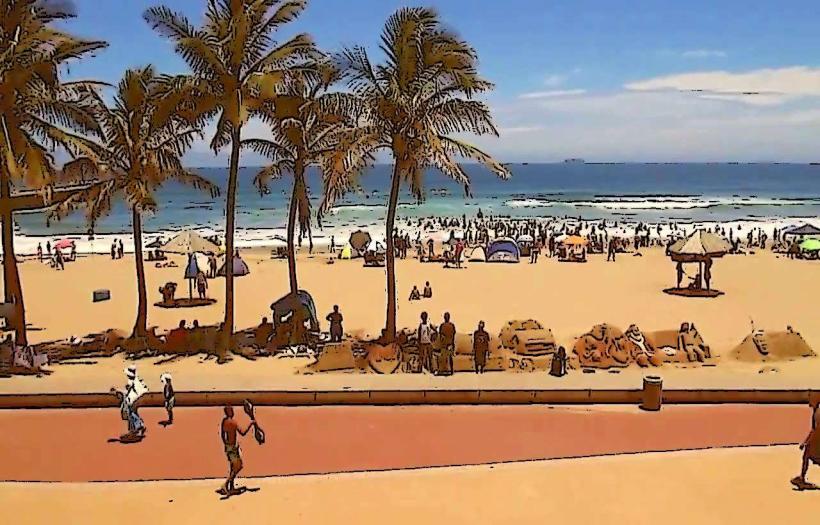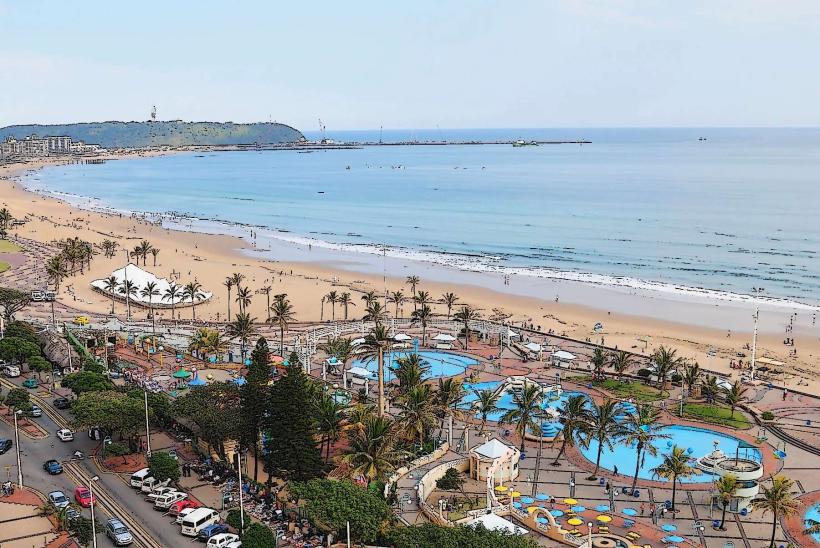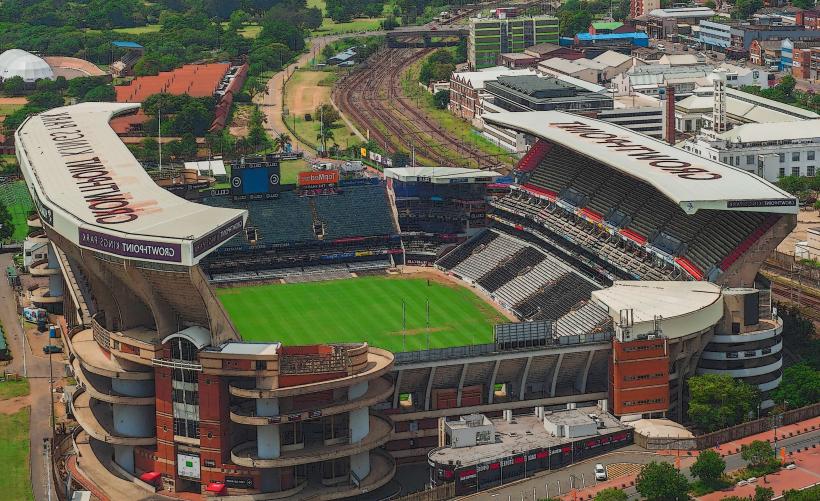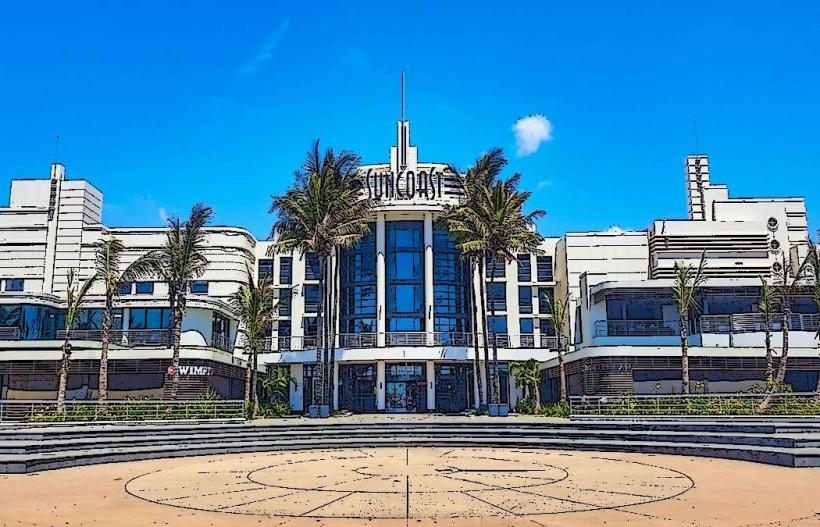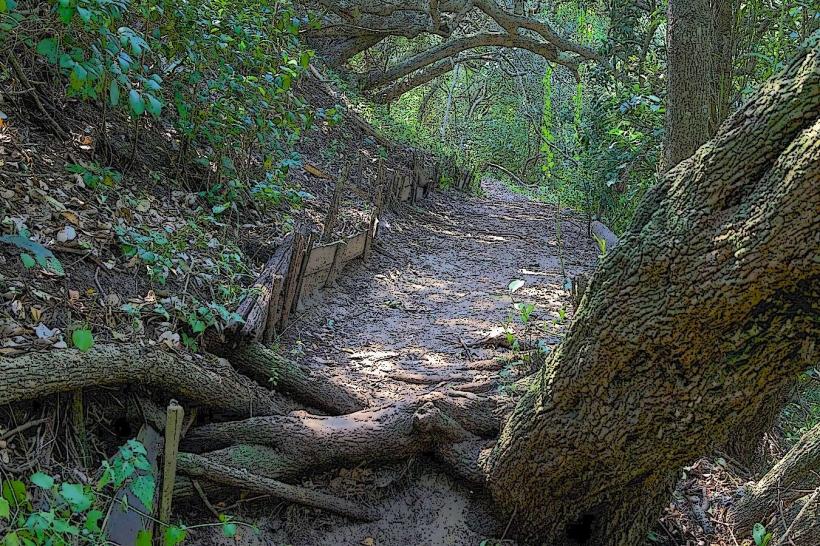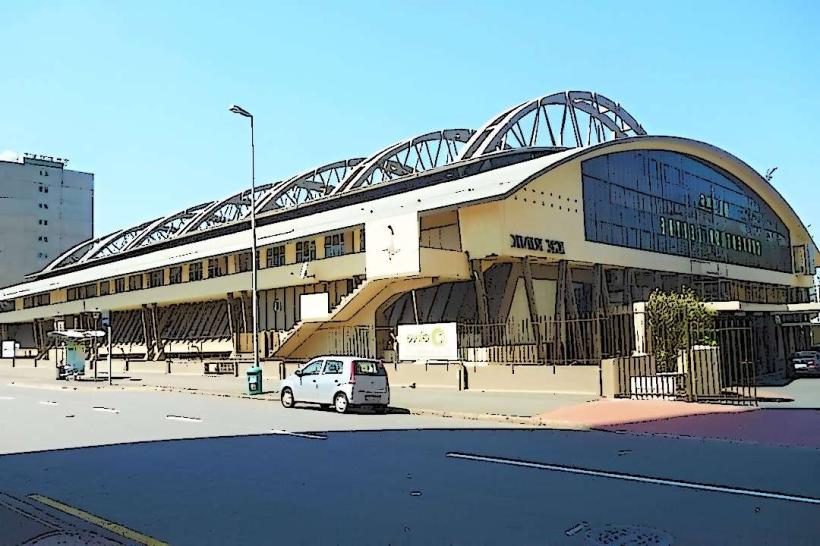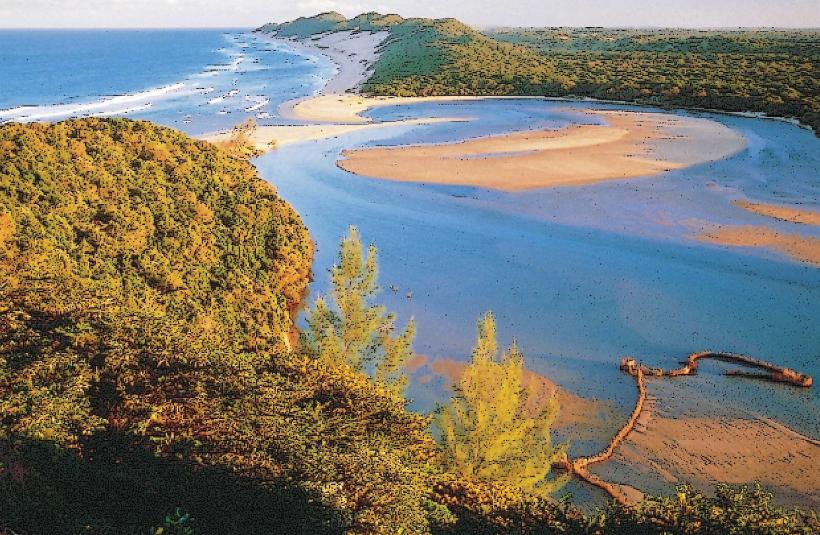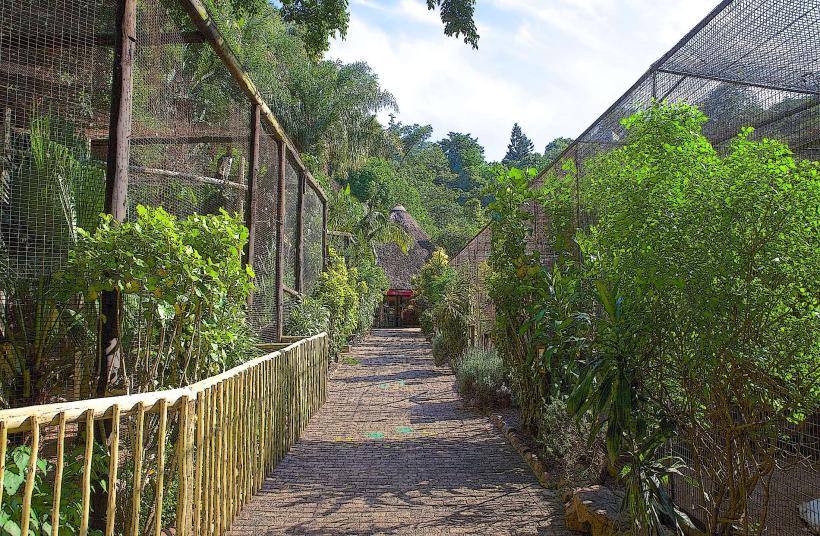Information
Landmark: Indian QuarterCity: Durban
Country: South Africa
Continent: Africa
Indian Quarter, Durban, South Africa, Africa
The Indian Quarter is a district located in the central business district of Durban, South Africa. It is characterized by its dense concentration of businesses and cultural sites originating from the Indian diaspora.
Visual Characteristics
The area features a mix of architectural styles, predominantly late 19th and early 20th-century commercial buildings constructed from brick and concrete, often painted in muted earth tones. Many structures are multi-story, with ground-floor retail spaces and upper-level offices or residences. Decorative elements include cast-iron balconies and ornate window frames. Street-level activity is high, with numerous small shops and market stalls.
Location & Access Logistics
The Indian Quarter is situated approximately 1 kilometer west of Durban's central beachfront. Access is primarily via Smith Street (now Dr. Pixley kaSeme Street) and Grey Street (now Yusuf Dadoo Street). Public transport is extensive, with numerous bus routes serving the area, including routes 1, 3, 5, and 12. Metered taxis and ride-sharing services are readily available. Limited on-street parking exists, with several multi-story parking garages located within a 500-meter radius, such as the Workshop Shopping Centre parking.
Historical & Ecological Origin
The development of the Indian Quarter began in the late 19th century with the arrival of indentured laborers and traders from British India. The area evolved organically as a commercial and residential hub for the growing Indian population. Its origin is socio-economic, driven by trade and community settlement, rather than a specific architect or planned construction date. There is no significant ecological origin to this urban district.
Key Highlights & Activities
Shopping for spices, textiles, and traditional Indian clothing is a primary activity. Visitors can explore the Victoria Street Market for a wide array of goods. Sampling street food and visiting local restaurants offering South Indian and North Indian cuisine is recommended. Observing the architectural details of the older buildings provides historical context.
Infrastructure & Amenities
Public restrooms are available within the Victoria Street Market. Shade is provided by awnings over shopfronts and market stalls. Cell phone signal (4G/5G) is generally strong throughout the district. Numerous food vendors and small eateries are present within the market and along the main streets.
Best Time to Visit
The best time for photography is during daylight hours, from 9:00 AM to 4:00 PM, when street activity is highest and natural light is optimal. The months of May through September offer milder temperatures and lower humidity, making walking and exploring more comfortable. There are no tide-dependent activities.
Facts & Legends
A notable historical fact is that the area was historically segregated, with specific streets designated for different ethnic groups under apartheid legislation, before becoming a unified commercial center. A local tip is to negotiate prices politely when purchasing goods from market stalls.
Nearby Landmarks
- The Workshop Shopping Centre (0.3km East)
- Durban City Hall (0.8km Southeast)
- KwaMuhle Museum (0.7km Southeast)
- Old Port Natal (1.2km East)
- Marine Parade (1.5km East)

